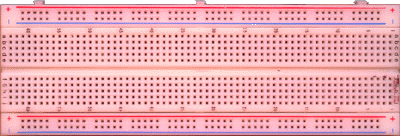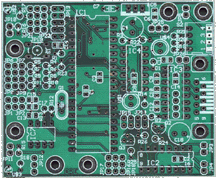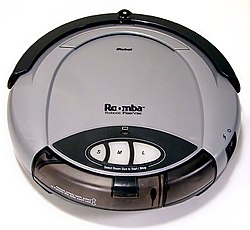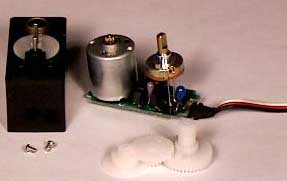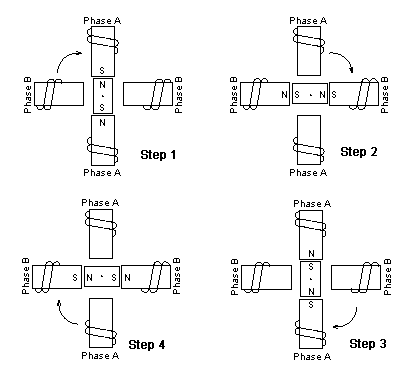ATLANTA, Georgia (CNN) -- After six weeks of strategy and sweat, a coalition of high school teams from Connecticut, Massachusetts and Nevada took the top prize at the FIRST Robotics competition, otherwise known as the "Superbowl of Smarts."
Bobcat Robotics from South Windsor, Connecticut, Highrollers from Las Vegas, Nevada, and Gompei and the HERD from Worcester, Massachusetts, won before thousands of screaming high-school participants.
"It was absolutely amazing. We had our ups and downs, but for the most part our robot performed flawlessly," said Colin Roddy of the Worcester team.
"We didn't expect to win at first, but it got better as the matches progressed," said Christopher Jelly from the Bobcat Robotics team.
A good arm is golden for a robot as well as a baseball pitcher.
"We have our arm that we were able to score pretty quickly with, to pick up the inner tubes off the ground," said Alex Sambvani of the Highrollers.
Building a good machine is not enough to make it to the final rounds. Team members had to scout other players to come up with a three-team coalition where there is strength in offense, defense and technique.
These young people had six weeks to perfect their machines. And they had the enthusiasm of any athletic competition. From tie-dyed shirts to human hair dyed in school colors, competitors from 23 countries showed that math, science and brains can provide a lot of excitement.
The students' creations are made with the same basic parts. Students must construct robots that can complete simple, and sometimes goofy, tasks -- such as shooting balls or stacking inner tubes.
Inventor Dean Kamen, best known as creator of the Segway transporter, began the competition in 1989 to rev up interest in math and science. "To sit passively in a classroom is a 19th-century format," Kamen said.
Ryan Gula of Milton High School in Alpharetta, Georgia, was hooked on the challenge after his first robotics club meeting.
"It's kind of like a puzzle that you have to put together, and you have to work with each group, to make sure everything fits together. And there's a lot of communication that way," said Gula, whose team made it to the final rounds of the larger FIRST robots.
Milton High adviser Suzy Crowe, a self-described geek and math teacher, said, "I don't think a lot of people think of science and technology as creative. There's nothing more creative."
Whether it is computer programming, wiring a motor or scouting rivals to develop strategy, students said the skills they develop often go beyond the contest. Clearly, the event has piqued the interest of major sponsors such as NASA, which will broadcast webcasts of the competitions.
"People look at robotics and think, yeah, it's just a big technology thing, and if you don't go into engineering, you're never going to use the stuff. Before I joined the club, I didn't know how to use a power drill," Milton senior Bryce Taylor said.
"It's just a simple skill that it's nice to know how to do it. I've learned a lot of stuff like that, that is going to stick with me for the rest of my life even if I don't go into something like engineering."
In its 18 years, FIRST has aimed at getting young women interested in technology careers. For Milton freshman Erin McPherson, it's working.
"When I came into eighth grade, I was more language-arts focused, and I thought that was what I wanted to do. I really didn't think I was very good at math or science, and then I started doing this, and pretty much my focus has shifted entirely," she said.
Now, she said, "I want to go to Georgia Tech and probably major in computer science or something like that."
Milton sophomore Stephanie Kosturik concentrated on checking out the competition during the preliminary battles.
"We sit in stands and take notes about all the groups, about whether they are offensive or defensive, what their strengths and weaknesses are," she said. "So if we get to a final in our competition and we can choose an alliance, we know who to choose that will work with us so we can win."
Robotics team members from Atlanta's Carver School of Technology set up a square playing field with goals at each corner. Their smaller Vex robot earned points by scooping up softballs and shooting them into goals.
In his first year with the robotics club, Thomas Hayes is captain of the "Hypnobots" team. A few days before the finals, he and other team members were doing some final tweaking.
"I want to be an engineer or a game designer, so this year I found out they were starting a robotics team," he said. "I was very excited. This is a very good opportunity for me to get 'hands on' and also see my creations at work."
It's the first year of coaching for Carver math teacher Regene Logan and biology teacher Kelsey Holec.
"They convinced me with their smiles and their stories from last year and just their dedication and their excitement about robotics," Holec said.
Figuring out glitches has led to some long nights and a real passion to build a better bot.
"They are taking engineering to a new level, " Logan said. "If they see something wrong, they take the initiative. They don't wait for someone to tell them to do something different."
Hayes said that not finishing first at one tournament turned out to be one of the best things that happened to the team.
"Our previous tournament, we came in second place. If we had won first, we would have sat down and said, 'Oh, our robot kicks butt, there's nothing else for us to do.' So second place made us sit down and realize what really was wrong and how to make a better robot," Hayes said.
One "Hypnobots" driver, team member Akanimo Effang, said he looked forward to meeting competitors from around the world as much as the competition itself
"Even though we feel that our robot is very efficient when scoring, and very maneuverable, our opponents are from around the world," Effang said. "We don't know what to expect."
